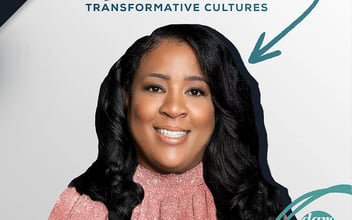Some of the most challenging calls I have received over the years are from leaders who are frustrated with an employee who has problems getting along with others. They may want this employee to go to training or want help hiring a coach for that person, or they want guidance on how to turn this person around. During that conversation the big BUT inevitably comes up...
This particular employee is a "rock star!" She is the best producer on the team. She gets RESULTS! She's holding up all the rest of the people on the team who aren't pulling their weight. BUT she just needs a little "tweaking."
I take a deep breath (and stop my silent scream!) and start to talk about the definition of a successful employee - the full definition. "It's a balance," I say. "Employees have to have as many people skills as technical skills."
Crickets... "HELLO??" I ask. I proceed on... "Employees have to be balanced. If they can't get along with you, co-workers, or anyone else, then there is a BIG problem. You have the right to have the discussion with this employee that they must perform successfully in BOTH areas." Many managers are shocked to hear this.
I hear the "but, but, but" on the other end of the phone and then suggest that we step back and think about things like the overall productivity of the whole team (remember she is carrying the team), as well as trust and respect on the team. What about employee engagement? How does everyone around this "rock star" feel about her, you, the company, etc.? What's the impact on the bottom line?
We discuss holding the employee accountable for effective people skills. Perhaps this is a discussion using a T-chart - one side reads People Skills and the other Technical Skills. Or a more formal Performance Improvement Plan (PIP). It requires open, honest input, not just shuffling her off to Human Resources to be "fixed." Hopefully the "rock star" understands and turns things around. Although it might ultimately mean that she leaves the company, with or without your encouragement.
You can and must lay out the full job responsibilities when an employee is hired. Regular conversations/check-ins over time allow for small course corrections that can prevent needing to call someone, like me, with a crisis on your hands. Everyone on your team needs to understand that the people side is just as important as the skills side of their job - or more!




